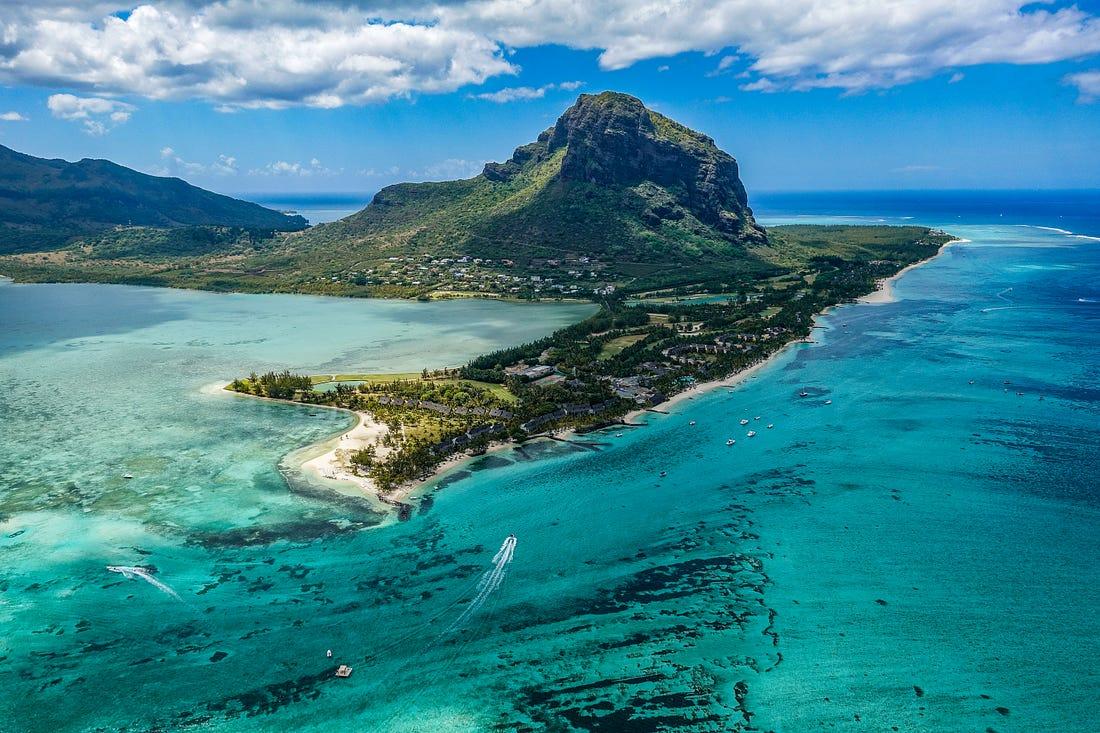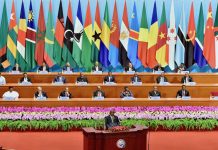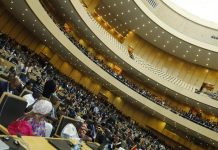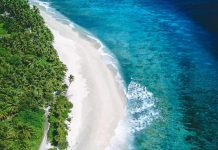Africa-Press – Mauritius. That was the quote from Nobel Prize laureate in economics, James Mead, who remarked that prospects for Mauritius are gloomy and the outlook for peaceful development is poor.
Perhaps, one can agree with Meade that the initial conditions were indeed not looking great for Mauritius.
Mauritius is in a geographically remote location that is away from centers of population and economic activity.
During the run-up to its independence in 1968, ethnic tensions were brewing with ethnic riots a frequent occurrence. The island also has one of the highest ratios of population to land area in the world.
Furthermore, the economy was then, powered by a single crop, sugar, that is highly volatile and yet accounts for over 90% of its total exports. But, today, by any measurement, Mauritius is by far one of the most successful African nations.
It was admitted into the high-income club by World Bank in 2019 with $12,500 per capita earnings before the pandemic struck. An increase of more than 60 times from its independence in 1968, significantly outpacing the rest of the African nations or the world at large.
It is also consistently ranked at the top of the governance rankings in the geographical region of Africa and the country also has a diversified economic structure tilted towards services, with numerous contributing pillars.
Agriculture accounts for less than 4%, of which sugar barely accounts for a third of that. On a societal level, there has also been a tremendous success.
At the time of independence, only a third of children were enrolled in primary school, but today, that has reached also 99%. The government is going beyond that, by pursuing a “one graduate per family” policy.
Life expectancy has also increased from around 58 to 74 years now. The story of Mauritius since its independence has been a fantastic and almost miraculous one.
But what exactly happened behind the scenes to enable such a transformation? The first building block is the implementation of several good policies since its independence.
The most important and note-worthy policies include creating a well-managed Export Processing Zone, avoiding currency overvaluation, and massive educational spending.
The first piece of the puzzle was the implementation of the Export Processing Zone or EPZ. At the time of its independence, Mauritius had a very small internal market with low purchasing power.
The government tried to focus on import-substitution policies that were biased against exports in order to protect local businesses. They did this by imposing import quotas, prohibitive import duties, and much more.
Eventually, such import restrictions created shortages of inputs for exporting industries and the cost of protection for inward-looking industries proved to be too high to be sustainable.
Mauritius eventually embraced an outward-oriented strategy and the EPZ was established. The growth of the export sector with the establishment of the EPZ was a major driver of the economy and a source of foreign exchange.
Exports grew, in real terms, by an average of 3% in the 1970s and 11% in the 1980s, outpacing the growth of imports. The compositions of exports also shifted away from sugar with the establishment of the EPZ.
Furthermore, the inward-looking policies were not abandoned but merely adapted, with the so-called heterodoxy of trade policy adopted by the Mauritius government; by being open for exports but also protective for the import-competing sector.
On top of that, the government, supported by the IMF, was forced to devalue its Mauritius Rupee by 22.9% in 1979. Although this came as a massive political consequence to the government, the devaluation served to further boost exports.
Since then, the Central Bank of Mauritius’s exchange rate policy was immediately geared towards one main objective, which is to achieve and maintain the competitiveness of its export sector.
The exchange rate was monitored daily and corrected when necessary to keep it stable and undervalued. The success of its export industry was also supported by policies to boost its social capital.
The government was fully conscious of the economic importance of education given its lack of natural resources and they have invested massively in education.
Primary education was free since independence and free secondary education was introduced in 1976, and it was implemented nondiscriminatory with no disparity between girls and boys.
Research has shown that the accumulation of such human capital played a dominant role in explaining Mauritius’s growth rate of GDP with compelling evidence showing that education really is productivity enhancing.
These good policies can in turn be traced back to good institutions, which include creating a parliamentary structure with broad participation, a rule of law, and avoiding an army.
Leading up to its independence, the British brought in a 3 member Banwell Commission to work out a solution for the parliamentary system with various parties in 1967.
the eventual system features 20 districts with 3 members each. The top 3 candidates with the most votes in each district are elected. However, the electoral commission can seat an additional 8 of the unsuccessful candidates with the high number of votes as the best losers.
This helps to insure representation by all minority groups. On top of that, the boundaries of the districts were drawn to give bias to rural constituencies.
This form of parliamentary system requires the need to form coalitions that encourage consensus building and hence inclusion.
No single political party has ever managed to win elections without a coalition. As a result, there was moderation in policy-making, and positions were shared out with cabinet positions allocated to achieve ethnic balance.
Furthermore, this was supported by a strong rule of law with respect for property rights. This contrasted with other African countries that have either expropriated natural resources, taxed them away, or discouraged production.
It has also built a dependable legal system whose final court of appeal sits in the Privy Council in London which can be expected to deliver answers that will be respected by competing groups who might not necessarily trust homegrown mechanisms.
Finally, a standing army was foregone in Mauritius. Military spending in Mauritius in 1992 was only $6 per capita, equal to 0.45 percent of GDP or 4 percent of spending on education and health.
These statistics for other sub-Saharan countries are far higher, averaging $20 per capita, 2.8 percent of GDP, and 43 percent of education and health spending.
This enabled Mauritius to benefit from financial savings and also removes them from the threat of military coups that have plagued many other African nations.
The combination of strong institutions which resulted in good policies has undoubtedly contributed massively to the success of Mauritius since its independence.
Today the economy of Mauritius is diversified and service-oriented with tourism and financial services being the most vital parts of the economy. The Mauritius economy also relies on its offshore financial activity, textile industry, and sugarcane industry.
And perhaps as a mark of its progress since its independence, the agriculture sector only contributes around 3% to its economy. With its spectacular beaches and nature, tourism is one of the key pillars of Mauritius’s economy today.
With 0.25 tourists per resident, Mauritius is ranked 84th in the world, and in Eastern Africa, it ranked 2nd. International tourist arrival has been increasing at a steady rate before Covid-19 and in 2019 contribution of the tourism sector to GDP was 8.1%.
This is compared to an almost zero contribution by tourism in just 2005. The next key pillar is the financial services industry, with a GDP contribution of 13.1%, which dwarfs the tourism sector in Mauritius.
They have presented themselves as an investment hub for Africa and regularly top rankings for Africa measuring the ease to do business. This has allowed them to be well positioned as foreign investment interest in Africa grew over the years.
This is supported by a strong and stable legal and regulatory framework as well as a reliable political system which is a rarity for a continent that is often associated with volatile and unstable politics.
Despite being in a solid position to further elevate its status, Mauritius does face considerable challenges in the foreseeable future and perhaps the greatest one is to maintain its status as Africa’s offshore center of choice.
There have been maybe incidents of offshore organizations domiciled on the island that are playing a part in recent regional corruption scandals.
Perhaps the most recent example is the allegation by US-based Hindenburg Research that Adani Group has engaged in brazed stock manipulation and accounting fraud schemes over the course of decades.
At the heart of these allegations are whether the Adani group wields influence over the investment decision of multiple offshore companies incorporated in Mauritius.
Offshore investment companies based in Mauritius have limited requirements for corporate disclosures and have played a key role in the Adani affair so far.
Despite Mauritiu’s efforts to deal with corruption, some recent scandals have dwarfed former examples.
And in 2020, Mauritius was grey listed by the Financial Action Task Force which warranted increased monitoring, and suffered a tougher blacklisting by the European Union both on anti-money laundering grounds.
Efforts since then by the Mauritius government have got them successfully removed from the grey list and blacklist. However, damage to its reputation has been done.
This has provided a stark reminder of how their status as an offshore center can suffer if it does not keep up with the regulatory frontier. However, further opportunities lie for Mauritius to move up the value chain and continue diversifying its economy.
Efforts have been made for the development of niche high-value-added businesses in medical devices and pharmaceuticals. Expansion of education and the so-called blue economy which is the sustainable usage of ocean resources from rare-earth mining to tuna processing all provide ample opportunities for explosive growth.
The story of Mauritius has been a miraculous one, yet it can ill afford to rest on its laurels. Times are changing fast, and the only for them to survive is to adapt fast. And lucky for them, they are not short of experience.
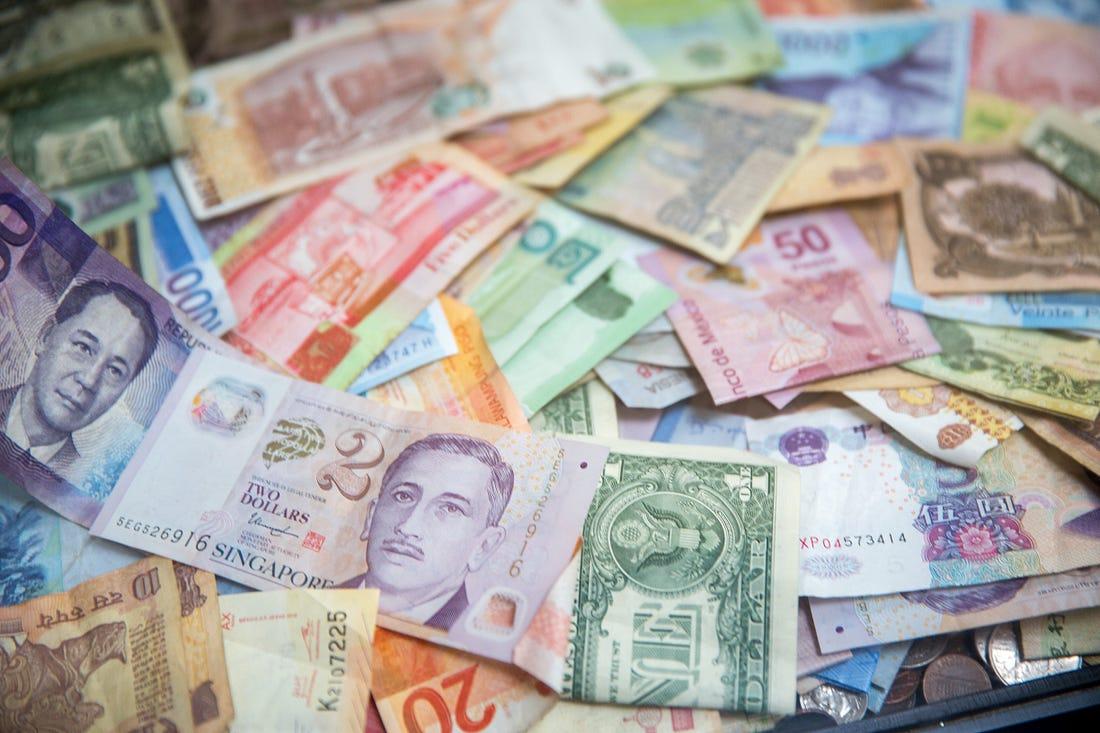
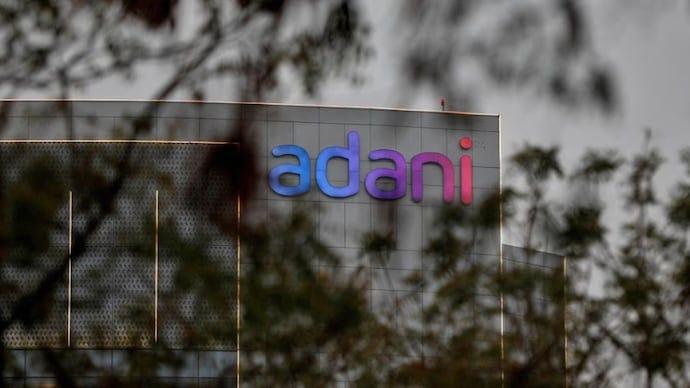
For More News And Analysis About Mauritius Follow Africa-Press


